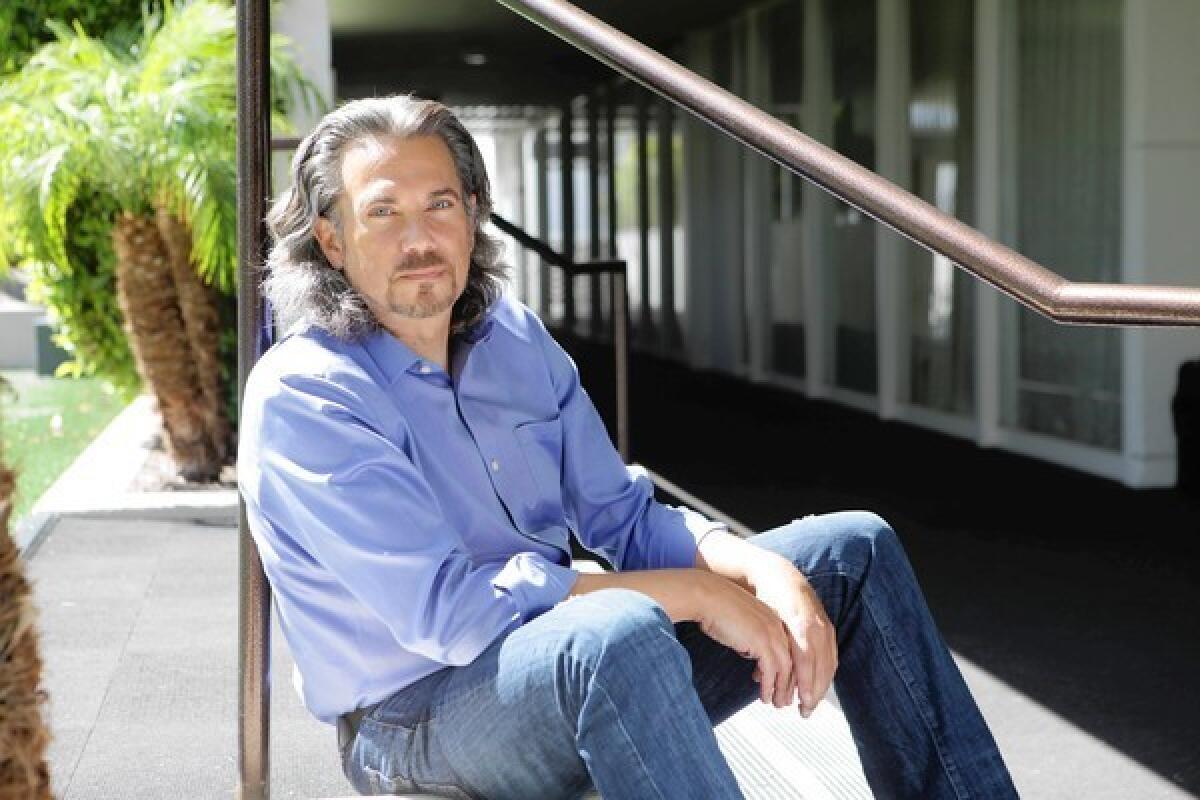Robby Benson shares lessons from heart surgeries

Robby Benson is sitting serenely in the cafe of the Beverly Hills Hilton, sipping hot coffee as afternoon sunlight pours in through the windows. The 56-year-old actor, voice of the Beast in Disney’s animated “Beauty and the Beast,” is the picture of rugged health and wellness; he wears a loose blue button-down, his thick brown hair falls in waves and his easy smile welcomes passersby as he stands up to say hello.
It’s not the appearance one would expect from a man who’s endured four open-heart surgeries in 18 years, but Benson, who runs and swims nearly every day, doesn’t give in easily to circumstance. In his recently published book, “I’m Not Dead …Yet,” he writes about his congenital heart valve defect and how his health motivated him to find a new way of life and to work toward helping others.
Your first open-heart surgery was in 1984. What finally prompted you to write about what you’ve gone through?
I have had the gift of people coming to me and asking for advice and help with either loved ones or themselves. They’re either an advocate or a patient, and one way or another they are very vulnerable. I want to give as much of myself as I possibly can to help them navigate this very brutal experience.
When I woke up in the ICU after my fourth open-heart surgery, I started thinking, if I could show the things that I’ve been through and the mistakes that I’ve made — and I’ve made a lot of mistakes — people can bypass these mistakes and have a better and healthier experience.
How are you feeling now, and what are you doing for exercise?
What I learned is that moderation is really imperative. I feel so lucky to celebrate my body and exercise. To me it is a gift.
I do 45 minutes of cardio most days — it’s not killer cardio, but it’s moderate, and it keeps my entire body healthy. Exercise is so good for me mentally too. Other days I use the Stairmaster for 45 minutes, then I take off my sweaty shirt, put on those really cool barefoot running shoes, put on my goggles and I run about two miles to a lake by our house — at a decent pace, nothing fast, just what feels right at that moment — then I swim across the lake and I run home.
How did your heart disease change the way that you live and approach life?
You know, each surgery is such an education, such a learning experience. The year before the first surgery, I had run the New York Marathon. I thought it would be noble to bounce back from the surgery as fast as I possibly could, to the point where eight weeks to the day that they cut me open, I ran a 10K.
At the time, I thought that was the right thing to do. But I was putting myself in jeopardy foolishly by being macho. I thought that was taking care of my family, when in truth I should have gone for long walks holding my wife’s hand, being with her and talking with her.
There are also days when I’ll start my run, then and then I’ll stop and I’ll say, “You know, I think I’ve done enough.” I would never have done that before, because I thought of it as quitting. I perceived quitting as something that can be an epidemic; once you start, it might creep into other things. I’ve learned that’s just not the case. I’m not quitting. If I feel good tomorrow I’ll go for this run, this swim, but today I think I’m going to go home and write some music.
What are you hoping to accomplish by being so public about your health challenges?
It took me so long to get to the point where I started making the right choices and stopped being a macho control freak, and I hope people can learn from that.
I also really believe, having been a patient for so long, that it’s harder to be the loved one than it is to be the patient. The patient has tangible things that they’re dealing with; they feel the pain, they understand the pain, but the loved one has to deal with the unknown and use their imagination, and I think that’s very frightening. That’s where the book comes in.
Do you think this has opened you up artistically and creatively?
Always. In my life, I have learned to harness that energy from almost everything that’s happened to me into something creative, even if it’s incredibly negative energy. Otherwise it’s a waste of my time. As far as I’m concerned, to just sit around and stew in negativity and anger is wrong. There’s no doubt that I could get started in the negative and have as much anger as anyone you’ll ever meet, but I was taught at a very, very young age to turn that energy into something positive.



